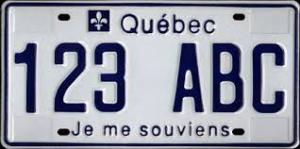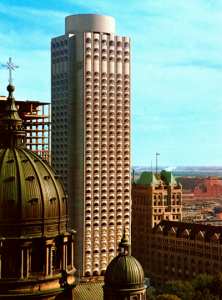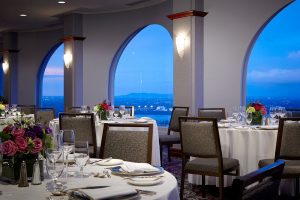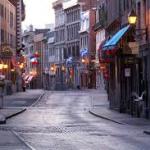A number of years ago, during the early years of President Barack Obama’s first term, a debate raged over his proposed “Affordable Care Act” which, once successfully made into law, became the signature achievement of his presidency. I recall a pointed debate the “Letters to the Editor” page of our local newspaper (this was in the days when there were still hardcopy newpapers and printed letters to the editor). One critic of the proposed act wrote “I’m against this! What, do we want to be like Canada?” to which someone responded “What’s wrong with Canada? Canada is awesome!”
Indeed it is, so awesome that Jeanne and I are already planning our two-week vacation next summer with Canada in mind. Our last big vacation was five years ago in Scotland, which still ranks as the most beautiful place I’ve ever been. When a friend who lives near Toronto heard how much we loved  Scotland, she said “then you have to go to Newfoundland! It’s the closest thing to Scotland that you’ll find in North America.” So for our first major post-pandemic vacation next summer, we are going to Newfoundland.
Scotland, she said “then you have to go to Newfoundland! It’s the closest thing to Scotland that you’ll find in North America.” So for our first major post-pandemic vacation next summer, we are going to Newfoundland.
Louise Penny’s Chief Inspector Gamache mystery series has everything a lover of mysteries could want. Fascinating characters developed from book to book, psychological insights into the best and worst of human nature, a bit of humor, a lot of creativity, a quaint setting where nothing ever happens (other than a murder every few months), and plenty of dead bodies. One of the additional selling points of any mystery series is often an exotic and unfamiliar setting, but here Penny’s books are different from the P. D. James, Elizabeth George, Jo Nesbø, and Kate Atkinson series that I particularly like. Chief Inspector Gamache does his work on territory very familiar to me, only a few dozen miles from where I grew up. Accordingly, I feel that I am returning home every time I open one of Penny’s books.
Since we lived only forty miles south of the Canadian border, I saw many Québec license plates during my youth. “Je me souviens,” each plate said—to my great confusion.I knew no French; my brother, who took two or three years of French in high school, was useless when it came to actually translating something in real time. He struggled reading a menu in French, but at least could translate the word “meubles” (furniture) on a Québec billboard. I remember my father’s uproarious laughter as my brother tried to explain how the word was pronounced in French—it sounded like a cow mooing through its nose.
As I got older I was equally useless translating French, since I spent four years in high school learning Latin—I didn’t learn any French until college, and then only French for reading classics in the original. All highly impractical, and all poorly fashioned for translating license plates. Tracing “Je me souviens” back to possible Latin roots (“subvenio”), I thought it might mean “I assist” or even “Follow me.” I knew that the “me” on the license plate made it a self-referential verb, but “I assist myself” or “I follow myself” didn’t make sense. I didn’t know anyone who knew French, never thought of asking the French teacher across the hall from the Latin class, so I left northern New England for college not knowing what the saying on Québec license plates meant.
Many years later I realized that “Je me souviens” means “I remember,” something that reading Penny’s Chief Inspector Gamache series has reminded me of. I’m not sure what Québec drivers are remembering—the province has a fascinating and convoluted history, both internally and with the rest of Canada (as well as the U.S.), so it could be just about anything. But “I remember” matches my own thinking about Québec these days—as I live with the characters in each book (eighteen so far and counting) in their fictional little town of Three Pines (which would be no more than fifty miles from where I grew up if it existed) and as they travel to Montreal and Québec City, the memories come flooding back.
 I remember that Sherbrooke, a small city (or so it seemed to a country boy such as I) only a bit over an hour away, was the location of Mee Ho, our favorite Chinese restaurant (actually the only Chinese restaurant I ever ate at before I turned twenty). God forbid that we should ever explore our neighboring towns and find out whether Vermont’s Northeast Kingdom had any Chinese restaurants; once my father found something he liked, he never wanted to change. Our trips over the border were so frequent that the border guards at the Newport, VT crossing eventually started waving us through—we just needed to slow down sufficiently for them to realize who it was. Sort of like EZ Pass decades before its time. It was during these monthly excursions to Sherbrooke that I benefitted from Canada’s tolerant laws concerning when human beings are allowed to consume alcohol.
I remember that Sherbrooke, a small city (or so it seemed to a country boy such as I) only a bit over an hour away, was the location of Mee Ho, our favorite Chinese restaurant (actually the only Chinese restaurant I ever ate at before I turned twenty). God forbid that we should ever explore our neighboring towns and find out whether Vermont’s Northeast Kingdom had any Chinese restaurants; once my father found something he liked, he never wanted to change. Our trips over the border were so frequent that the border guards at the Newport, VT crossing eventually started waving us through—we just needed to slow down sufficiently for them to realize who it was. Sort of like EZ Pass decades before its time. It was during these monthly excursions to Sherbrooke that I benefitted from Canada’s tolerant laws concerning when human beings are allowed to consume alcohol.

As long as they are accompanied by an adult, a child could have an adult beverage at any age. I don’t doubt that the law is the same fifty years later. I remember Montreal, the big city of my youth, much closer to our house than Boston to the south. The Chateau Champlain was our downtown hotel of choice; now Marriott, it was a Canadian Pacific hotel when we stayed there–the train station was right under the hotel. My cousins and I used to each take one of the four elevators, ride from the lobby to the thirty-fifth floor, then down to a random floor, jump on another elevator—and see how long it would take until we ran into each other. I watched my mother drink her first alcoholic drink (a Brandy Alexander) at L’Escapade, the circular restaurant and bar on the top floor (she didn’t like it). 
We always requested a room overlooking Mary Queen of the World Basilica. As a hardcore Protestant kid, I was both attracted to and repelled by St. Joseph’s Oratory, with devoted pilgrims climbing steep stairs on their knees as well as discarded crutches and canes hanging on the walls as mute testimonies to miraculous healings over the decades is imprinted indelibly on my memory more than forty-five years later.

I remember Québec City, especially its middle-of-the-winter Carnival, where I first experienced cold intense enough to freeze the tears in my watering eyes. The red-sashed snowman Carnival mascot Bonhomme, the toboggan run on the boardwalk along the Saint Lawrence River, and elaborate ice sculptures made the bone-numbing cold worth it. The spectacular  Chateau Frontenac looking all the world like a medieval castle, with its pricey St. Laurent bar where patrons can view the Saint Laurence River and the boardwalk through a semicircular glass wall. Aux Anciens Canadiens, the oldest house in Québec turned into a restaurant, with its servers dressed in period costumes, white exterior and red roof. The Plains of Abraham, where the English and French fought a landmark eighteenth-century battle for the control and soul of the territory and where Generals Montcalm and Wolfe both died. The Chateau Pierre, a small bed and breakfast where we always stayed. I’ve not traveled much outside of North America, but am told that the old, walled portion of Québec City is the closest one can get to old Europe without going there.
Chateau Frontenac looking all the world like a medieval castle, with its pricey St. Laurent bar where patrons can view the Saint Laurence River and the boardwalk through a semicircular glass wall. Aux Anciens Canadiens, the oldest house in Québec turned into a restaurant, with its servers dressed in period costumes, white exterior and red roof. The Plains of Abraham, where the English and French fought a landmark eighteenth-century battle for the control and soul of the territory and where Generals Montcalm and Wolfe both died. The Chateau Pierre, a small bed and breakfast where we always stayed. I’ve not traveled much outside of North America, but am told that the old, walled portion of Québec City is the closest one can get to old Europe without going there.
All of the above and more are woven into the Chief Inspector Gamache series; each book opens a different door in my memory. Even as an adult, Québec remained important in my life. My honeymoon as a barely twenty-year-old kid was spent in Montreal, then Québec City. We stayed in the Chateau Pierre—that marriage didn’t work out. Twenty years later I returned to both cities with Jeanne (her first time) and discovered just how limited my early experiences had been.  I saw Old Montreal and the Lower City of Québec below the cliffs on which the Old City perches for the first time.
I saw Old Montreal and the Lower City of Québec below the cliffs on which the Old City perches for the first time.
We didn’t stay in the Chateau Pierre (for obvious reasons). Jeanne has traveled to Montreal numerous times since then for work—I have not been to Québec for close to two decades. But with Louise Penny I am remembering a thread of my life tapestry that, although largely forgotten, has defined more of who I am than I realized. Funny how that happens.













